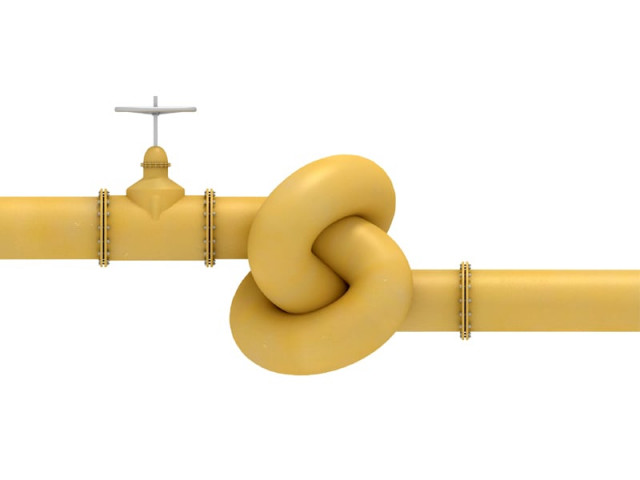Gas curtailment: Textile millers smell ‘conspiracy’
Say gas supply to Punjab’s industry being cut to half.

Ejaz said a 50% cut in gas supply would foce the textile mills to purchase power at a higher price of Rs12 per unit from state-owned generation companies and IPPs. PHOTO: FILE
All Pakistan Textile Mills Association (Aptma) group leader Gohar Ejaz, while talking to a select group of journalists on Tuesday, described the allegation that Punjab’s captive power plants were inefficient as a very lame excuse. Ironically, he said, gas supply to Sindh mills was not being reduced because of Article 158 of the Constitution, which gives first right of use of the natural resource to the province where it is discovered.
Elaborating on the conspiracy, Ejaz said a 50% cut in gas supply would deprive the textile mills of Rs6 per unit electricity and they would be forced to purchase power at a higher price of Rs12 per unit from state-owned generation companies and independent power producers (IPPs).
“It is a conspiracy to close Punjab’s textile industry, which invested billions of rupees in captive power plants for electricity production back in 2006,” he alleged.
Ejaz stressed that the textile industry, comprising spinning, weaving and processing units, was running its captive power plants on an average 40% efficiency compared to 48% for the IPPs.
The diversion of gas supply from the captive plants to the generation companies and IPPs would give a ‘negligible’ benefit of eight percentage points in efficiency, but at the same time electricity cost of the industry would double, putting at stake its viability, he said. He did not say however, how much did the cost of power figure in the total cost of production.
With the passage of time, he said, it had been proved that running textile mills on electricity supply directly from the system was impossible as those depending on independent feeders had already been closed down.
He suggested that electricity shortage in the country could be overcome by returning to optimum capacity, providing immediate finances to the companies and recovery of unpaid bills from the defaulters.
Published in The Express Tribune, April 24th, 2013.
Like Business on Facebook to stay informed and join in the conversation.



















COMMENTS
Comments are moderated and generally will be posted if they are on-topic and not abusive.
For more information, please see our Comments FAQ